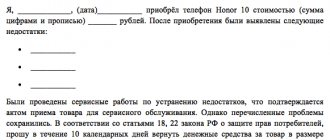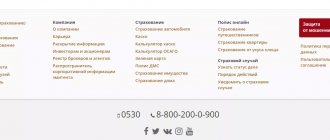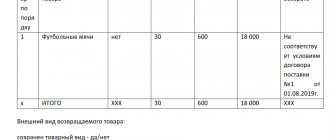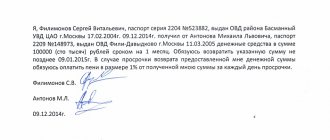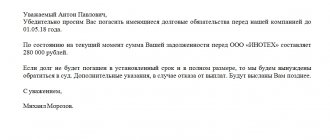So what does the concept of unjust enrichment without a contract mean? How to correctly draw up a statement of claim in court for the recovery of illegal enrichment? Read our material.
The essence of unjust enrichment is that a person, without any reason or permission, acquires or saves property and derives income from it.
In other words, he enriches himself at the expense of property that does not belong to this person on the grounds provided by law.
Procedure for recovery of unjust enrichment
Let us immediately note that, according to the law, an individual or legal entity in the event of such an outcome of events is obliged to return the money, since it was obtained illegally. In addition, this obliges you to pay compensation. This is established exclusively by the court after a claim for the recovery of unjust enrichment is filed. Now let’s look at the procedure for collecting the amount of unjust enrichment:
- A claim for recovery of unjust enrichment can also be submitted orally. Negotiate with the guilty party. It is possible that the person who received the erroneous payment does not understand what happened and how to get it back now. The conflict will be resolved without further preparation of documents and proceedings.
- A claim is needed if the other party does not want to return what was received without explanation or begins to argue about what part of the services did and what it costs exactly that much. As it became clear, trial cannot be avoided here; it all starts with filing a statement of claim in court. However, before this, you can try to contact the debtor with a claim, and if within a month you do not receive any response, then go to court. A claim for recovery of unjust enrichment is a prerequisite for filing for arbitration. Without following the claim procedure, you may be left without consideration of your claim.
- A lawsuit. Moreover, it should be taken into account that when filing a claim, you must be prepared for a complex process. In addition, along with this document, it will be necessary to provide comprehensive and supporting evidence that there was unjust enrichment based on an unconcluded agreement or other basis.
- Court on the issue . Collection can be imposed for both contractual and non-contractual obligations. Moreover, the second option is a more complex process, which is better to entrust to our lawyer.
- Deciding to collect unjust enrichment is not the same as getting your payment back. It is possible that the party will be dissatisfied and begin an appeal, which will lead to a shift in the timing of the entry into force of the adopted judicial act.
- Performance list . Only after all the appeal procedures do you write an application for the issuance of a writ of execution, receive it and take it to the bailiff service or the debtor’s bank.
- Execution of a court decision . Further, upon your request, the bailiffs or the bank initiate proceedings to transfer the entire award, so do not forget to indicate your details to receive the long-awaited amount.
How to prove it in court?
If you are a plaintiff, then the court, of course, cannot force you to prove the facts of the case. But the court’s opinion in such cases is clear: they do not prove something that did not happen. That is why the burden of proof falls on your shoulders. There is one more, perhaps the most important difficulty - if no evidence is provided that the defendant legally took advantage of you, this does not automatically mean that you are right. Simply put, the fact that the defendant did not prove that he received everything legally is not enough to satisfy your claim.
That is why, when planning to file a claim for unlawful enrichment, you should not skimp on a lawyer who knows all the nuances and undercurrents in these cases. He will also prepare a package of evidence. These are documents, checks that can confirm your words, as well as witness testimony that the disputed property was in the possession of the defendant and he received income from it; petitions.
You should also contact professional lawyers because they will assume obligations for pre-trial negotiations between the parties. Then you may not need to contact the servants of Themis at all.
Package of documents attached to the statement of claim:
- copy of the application;
- receipt of payment of the duty;
- documents on the plaintiff’s right to the property in dispute;
- documents on the amount of property value;
- evidence of the fact that the defendant acquired or retained the property illegally;
- confirmation of the profit received from this by the defendant;
- document on calculation of income from unauthorized enrichment;
- calculation of interest on income received for the use of property other than one’s own;
- other documents that may be relevant to the case.
A sample court decision can be downloaded from here.
What is and what is the subject of proof?
This is property that was unreasonably retained or withheld by the defendant and from which he had income.
Time limits for recovery of unjust enrichment
The general terms for the recovery of unjust enrichment are three years from the moment when the person learned or should have known about the unjust enrichment of the guilty party. A party may declare the statute of limitations for the recovery of unjust enrichment at any stage before the trial judge leaves for the deliberation room.
Therefore, do not waste time with negotiations and correspondence if you see the risks of missing the statute of limitations. And if you have already missed the required period, then stock up on the necessary evidence to initiate the procedure for reinstating the deadline. For example, the court may recognize illness, errors by the postal service, or other reasons that prevented everything from being done on time as valid reasons.
Duty
The amount of the state duty is determined by Art. 333.21 of the Tax Code of the Russian Federation and depends on the amount for which the claim was filed.
- up to 20,000 rubles - 4% but not less than four hundred rubles;
- if this amount exceeds the specified limit by at least a ruble and up to 100,000 rubles - a duty of 800 rubles plus 3% of the amount exceeding 20,000 rubles;
- for a claim worth up to two hundred thousand rubles - 3,200 rubles + 2% of the amount exceeding 100,000 rubles;
- up to one million rubles - 5,200 rubles plus 1% of the amount over two hundred thousand rubles;
- claim over one million rubles - 13,200 rubles + 0.5% of the amount exceeding one million rubles, but not more than 60,000 rubles;
Collection of interest for unjust enrichment and legal costs
Along with the main requirement for the return of unjust enrichment, you can declare:
- interest for unjust enrichment on the basis of each day that the payment was in the use of the second party;
- expenses for correspondence, postal and courier expenses;
- transportation costs in terms of gasoline, flight tickets or travel to the place of negotiations, court, bailiff service;
- expenses for a lawyer; under an agreement on the provision of legal assistance, we may invoice for consulting, drawing up a claim, representation in court and at the stage of execution of a court decision;
- other expenses associated with receiving back the amount of unjust enrichment.
Collection without a contract
Sometimes it happens that there was a verbal agreement, but there is no official document. It is no coincidence that Article 161 of the Civil Code prescribes a simple written form for all transactions. To do this, you don’t even need to visit a notary; transactions must be certified with his signature:
- private and legal entities;
- if the transaction amount exceeds ten thousand rubles;
- other types provided by law.
If you relied too much on a person’s decency, then in a dispute you will have to prove to the court the very fact that your property was in the hands of the defendant. For you, who once agreed with a person on something, everything is clear and obvious, but the court does not know this. Everything is complicated by the fact that Article 162 (clause 1) of the Civil Code, in the absence of a written form, witness testimony cannot be used to confirm the transaction and its terms.
When collecting liabilities from unjust enrichment, written and other evidence can be used. If at least some of the affairs that you had with the defendant were reflected on paper, there is a chance to recover unjust enrichment from him. True, it all depends on what exactly the documents confirm.
In this case, the following must be attached to the claim:
- copy of the claim;
- a copy of the payment order and invoice;
- pre-trial correspondence between the parties (papers, screenshots of emails);
- a document calculating interest for the use of someone else's property.
An example application can be viewed here.
Statement of claim for recovery of unjust enrichment
A claim filed in court must be drawn up correctly and carefully. It is better if this is done with the help of our lawyer. After all, a correctly and competently drafted claim provides more opportunities for a positive outcome of the case.
At the same time, when going to court, the statement of claim for the recovery of unjust enrichment must contain certain information, in particular:
- who is the plaintiff;
- its location;
- contacts;
- who is the defendant;
- proof;
- claims, etc.
How do trials work in such cases?
It should be noted that to resolve disputes of this kind, you should definitely resort to the help of Themis. Out-of-court proceedings are usually unsuccessful.
The plaintiff must prove the factual circumstances of the case, the defendant must prove that he acted without violating the rules (law or transaction). If he does not make due diligence in collecting evidence (documents, testimony, petitions), then the court will simply refuse to satisfy the claim, citing the plaintiff’s failure to perform procedural actions. In this case, the court cannot oblige the plaintiff to prove the facts.
Grounds for recovery of unjust enrichment
Most often, the main reason for collection is the receipt of money from the party who, having received payment on the invoice, simply forgot to fulfill their obligations properly, leaving everything received in their account. It turns out that the money was appropriated without a single return on their part, both in the form of goods, materials, and services.
Recovery of unjust enrichment by the heirs takes place when, seeing that the counterparty has died, he thinks that there is no need to do anything further, just as there is no need to return what was received and not worked out in full to the heirs of the testator.
ATTENTION: watch video arbitration disputes and subscribe to our YouTube right now to be able to receive free legal advice in the video comments:
Refusal to recover unjust enrichment
At the same time, when turning to the judicial authorities, you should understand that you can also receive a refusal to recover unjust enrichment for the following reasons:
- funds are not returned, for example, pensions, alimony, salaries, etc. in case of dishonesty of a citizen and a counting error;
- if there was charity or the amount was received due to the victim’s ignorance of the absence of such an obligation.
Be sure to take into account the information we provide. Then only positive results will be achieved. At the same time, I would like to advise, if necessary, to contact our specialist, who has proven himself to be the best. Our lawyer necessarily has extensive experience in the field of activity you are interested in and an impeccable reputation. The practice of collecting unjust enrichment happened to him more than once. A debt collection lawyer from our bureau can easily advise you on the most effective ways to solve the problem.
Arbitrage practice
When considering cases, courts are necessarily guided by the explanations of the Supreme Court and previous decisions; Judicial practice on claims for unjust enrichment is summarized and reviews are published. Judicial practice contains answers to the questions under what circumstances certain rules are applied, and how courts interpret the law. For example, now there is a position that upon termination of a contractual relationship, it is possible to recover the funds received under the transaction at the time of its operation under Art. 1102 of the Civil Code of the Russian Federation, if consideration has not been received or the need to receive it has ceased.
Also, if it is impossible to return the property, the defendant is obliged to return its value. By impossibility of return, courts also understand cases when property cannot be used for its intended purpose due to its complete deterioration.
